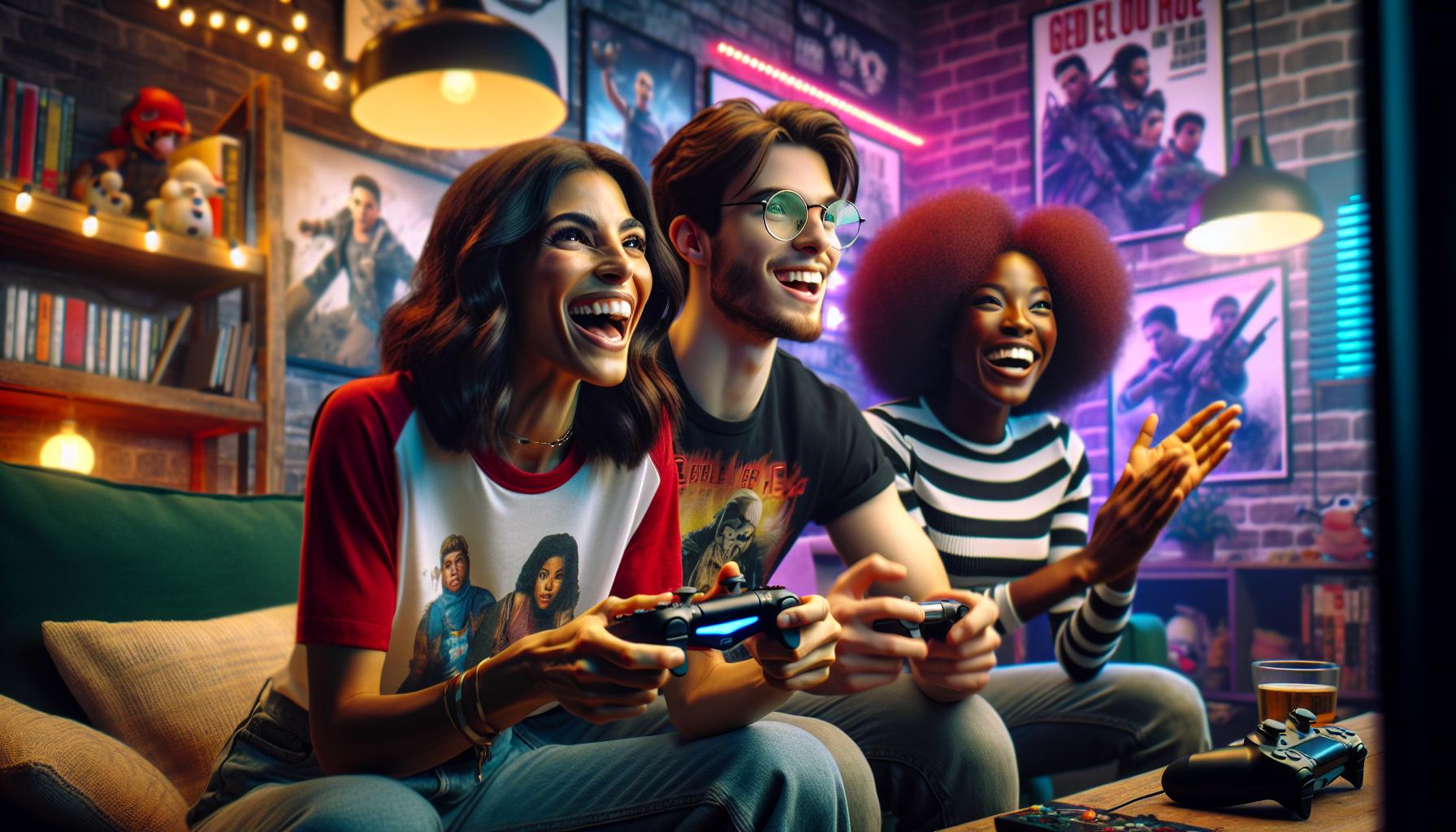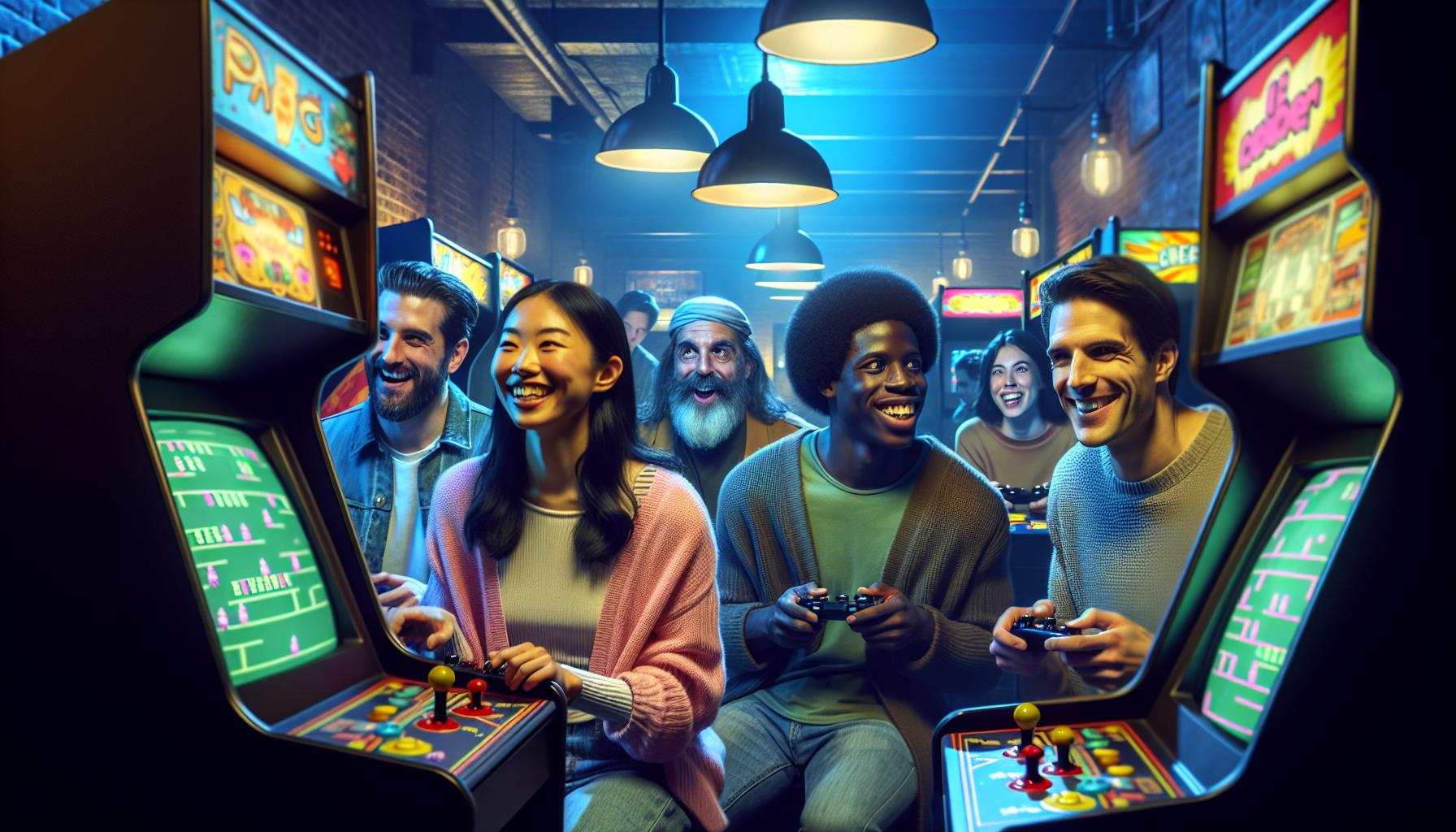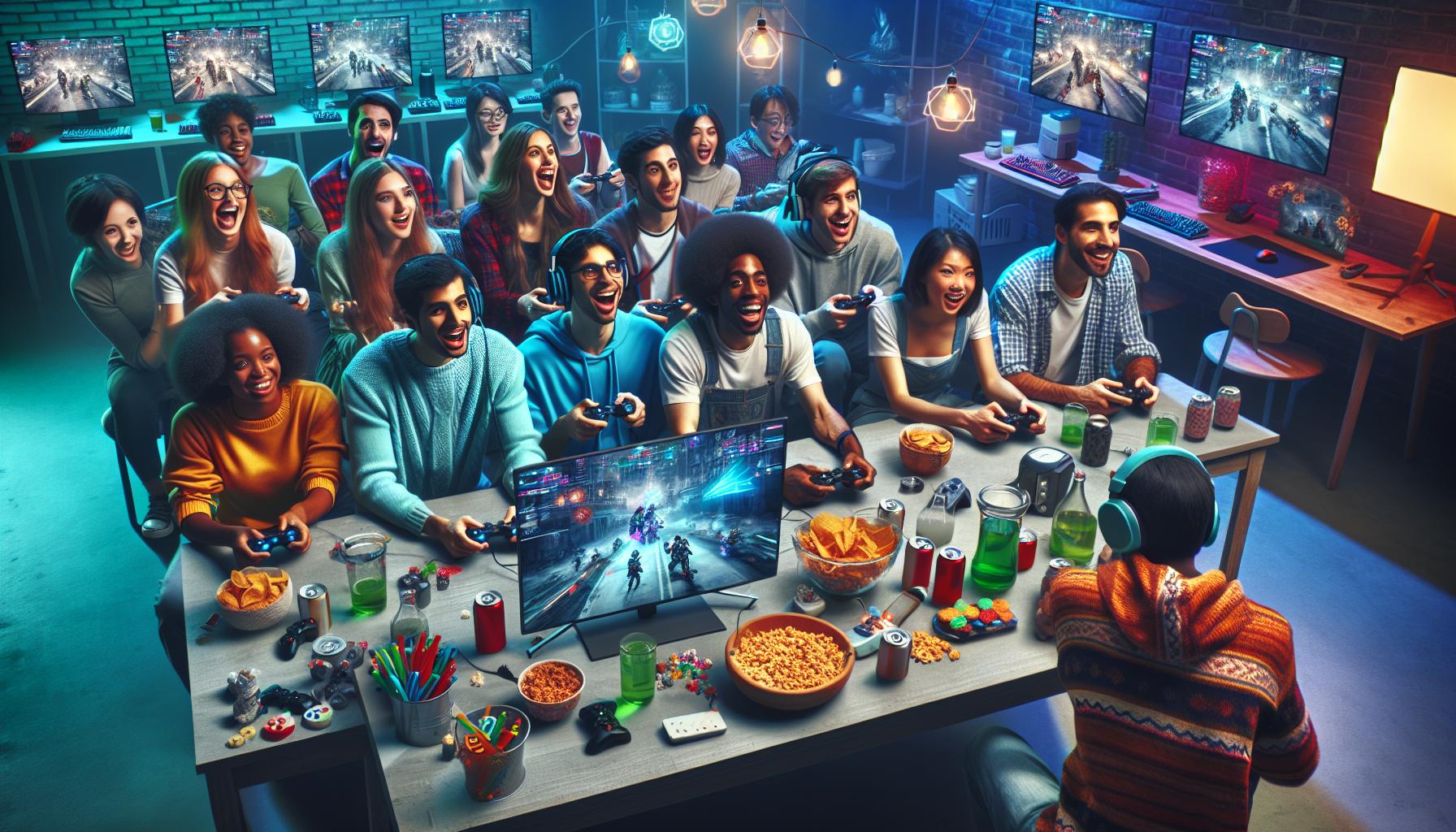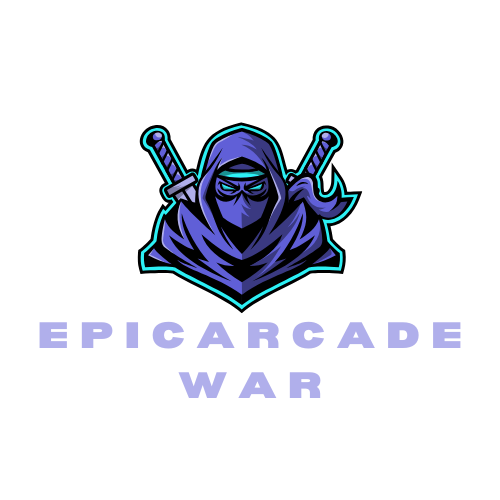The Best Fluffy Pancakes recipe you will fall in love with. Full of tips and tricks to help you make the best pancakes.

Which is the Best Definition of Gaming Culture? Exploring Its Evolution and Impact
Gaming culture has evolved into a vibrant and diverse phenomenon that transcends mere entertainment. It’s a dynamic blend of social interactions, shared experiences, and community-driven creativity. As I dive into this topic, I can’t help but reflect on how gaming has shaped not just individual identities but entire communities across the globe.
But what exactly defines gaming culture? Is it the games themselves, the players, or the rich tapestry of online communities that spring up around them? In exploring the best definition of gaming culture, I’ll unravel the layers that make it such a compelling aspect of modern life. Whether you’re a casual gamer or a hardcore enthusiast, understanding this culture can deepen your appreciation for the art and connections it fosters.
Key Takeaways
- Definition of Gaming Culture: Gaming culture is a multifaceted phenomenon that includes games, players, and the communities that form around gaming experiences, transcending mere entertainment.
- Historical Evolution: The journey of gaming culture has evolved from arcade games in the 1970s to the rise of online gaming and esports, marking significant milestones that shape its social dynamics.
- Key Characteristics: Community and social interaction are at the heart of gaming culture, fostering connections through multiplayer formats, platforms like Discord and Twitch, and in-person gaming events.
- Diversity and Inclusivity: Gaming culture embraces diversity by welcoming players from various demographics and emphasizing representation, which cultivates an inviting atmosphere for all gamers.
- Perspectives on Gaming Culture: Academic studies and personal gamer insights reflect the significance of gaming as a cultural artifact, highlighting its impact on identity, community formation, and creative expression.
- Criteria for a Definition: Effective definitions of gaming culture consider community engagement, media diversity, historical context, accessibility, and creative expression to encapsulate its complexity.
Overview of Gaming Culture
Gaming culture represents a complex tapestry woven from various threads, including the games themselves, the players who engage with them, and the communities that emerge around these experiences. The journey of gaming culture has undergone significant evolution, shifting from niche pastimes to mainstream phenomena embraced by millions. It’s not merely about playing games; it encompasses the social dynamics, shared narratives, and communal creativity that arise within this space.
Key elements include:
- Games: Modern video games serve not just as entertainment but as platforms for storytelling, artistic expression, and social engagement.
- Players: Diverse player communities range from casual gamers to professional esports athletes, each contributing unique perspectives and experiences.
- Online Communities: Forums, streaming services, and social media platforms foster environments where individuals connect, share insights, and collaborate on various projects.
Gaming culture influences identities, with players often identifying strongly with their gaming experiences. This culture has facilitated global connections, allowing people from different backgrounds to unite over shared interests and competitive events. Understanding gaming culture means recognizing its multifaceted nature, rooted in collaboration and creativity that transcends geographic boundaries.
Historical Context of Gaming Culture

Gaming culture has evolved significantly, becoming a vibrant phenomenon that transcends entertainment. This evolution reflects a journey marked by social interactions and community engagement, shaping identities and global connections.
Evolution Through the Years
Gaming culture’s evolution began in the 1970s with arcade games. Early arcade classics like “Pong” and “Space Invaders” sparked interest and competition. The 1980s introduced home consoles, bringing games like “Super Mario Bros.” into living rooms. This shift encouraged communal play and created bonds among players.
In the 1990s, online gaming emerged with titles like “Doom” and “Ultima Online,” allowing players to connect across distances. The creation of gaming forums and early websites fostered community discussions about strategies and experiences. By the 2000s, multiplayer online battle arenas (MOBAs), such as “League of Legends,” and massively multiplayer online games (MMOs) like “World of Warcraft” further expanded the social aspects of gaming.
Influential Milestones
Several key milestones defined gaming culture’s trajectory:
| Year | Milestone | Impact |
|---|---|---|
| 1972 | Introduction of arcades | Created a social gathering place for gamers |
| 1985 | Launch of “Super Mario Bros.” | Revolutionized home gaming and character design |
| 1993 | Release of “Doom” | Pioneered first-person shooters and online play |
| 1999 | “EverQuest” launched | Established the MMO genre and community dynamics |
| 2004 | “World of Warcraft” released | Set records for subscriptions and online communities |
| 2010 | Rise of esports with events like “League of Legends” World Championship | Professionalized competitive gaming, attracting millions of viewers |
These milestones illustrate how gaming culture transitioned from solitary experiences to vibrant, interconnected communities. The overlap of technology advancements and player engagement shaped the landscape of gaming as we know it today.
Defining Characteristics of Gaming Culture

Gaming culture embodies unique characteristics shaped by community dynamics, social interaction, diversity, and inclusivity. These elements create a rich environment where players connect and express themselves.
Community and Social Interaction
Community serves as a cornerstone of gaming culture. Players engage in multiplayer formats, collaborating or competing in real-time. Platforms like Discord and Twitch facilitate communication, allowing gamers to share experiences. In-game chat functions, forums, and social media groups enhance these connections, fostering friendships that often extend beyond gameplay. Esports events, conventions, and gaming meetups exemplify how shared interests unite players, strengthening community bonds.
Diversity and Inclusivity
Diversity and inclusivity mark vital characteristics of gaming culture. Widely varied genres and accessible platforms invite participation from diverse demographics, including different ages, genders, and ethnicities. Emerging games often prioritize representation, featuring characters and stories that resonate with a broader audience. Initiatives advocating for inclusivity, such as women’s gaming organizations and LGBTQ+ gaming groups, amplify underrepresented voices. These efforts contribute to creating an inviting atmosphere that celebrates diversity and inspires a sense of belonging among players.
Perspectives on Gaming Culture

Gaming culture offers various viewpoints that enrich its understanding, reflecting both academic perspectives and insights from gamers themselves.
Academic Views
Academics define gaming culture as a multifaceted phenomenon influenced by social, technological, and economic factors. Scholars examine gaming as a cultural artifact that shapes identity and societal interactions. Research highlights the role of narrative structures in games, examining how storytelling enhances player engagement. Additionally, studies note the impact of game design on community formation, with multiplayer elements encouraging cooperative gameplay. The shift toward digital platforms facilitates global connections, transforming local gaming communities into international networks. Academic perspectives scrutinize not only the content of games but also the implications of gaming behaviors, effectively positioning gaming culture within broader cultural studies.
Gamer Opinions
Gamers often express a personal connection to gaming culture, emphasizing community and shared experiences. Many view gaming as a social outlet that fosters friendships and collaboration. Gamers appreciate the diversity of genres, noting how different games cater to varied interests and playstyles. Online platforms enable gamers to connect, share strategies, and participate in discussions about game mechanics and narratives. Moreover, many gamers advocate for inclusivity within gaming, supporting initiatives that amplify underrepresented voices. These opinions illustrate that gaming culture is more than entertainment; it represents a collaborative ecosystem where creativity and connection thrive.
Which is the Best Definition of Gaming Culture?
Defining gaming culture involves a thorough understanding of its multifaceted nature. I consider various criteria and popular definitions that capture the essence of gaming culture in today’s society.
Criteria for a Definition
Effective definitions of gaming culture encompass key elements that contribute to its identity. These criteria include:
- Community Engagement: The level of interaction and collaboration among players shapes the experience.
- Media Diversity: The variety of game genres, platforms, and storytelling methods impacts cultural expression.
- Historical Context: Understanding the evolution of games and player demographics enriches the definition.
- Accessibility: Consideration of how games reach diverse audiences highlights inclusivity.
- Creative Expression: The opportunities for player-generated content, such as mods and fan art, reflect community creativity.
These criteria help distill the complexity of gaming culture into a more manageable definition.
Popular Definitions Compared
Identifying the best definition requires examining multiple perspectives. Popular definitions include:
- Academic Perspective: Scholars view gaming culture as a dynamic interplay of social and technological elements. They analyze how narratives and gameplay mechanics influence community dynamics.
- Casual Gamer Perspective: Casual players often define gaming culture as a social activity that fosters friendships and shared interests. They emphasize enjoyment and connection over competitive aspects.
- Professional Gaming Perspective: Esports participants define gaming culture through the lens of competition and achievement. They recognize the professional infrastructure that accompanies high-level play.
Each definition highlights different aspects of gaming culture, emphasizing its complexity and depth.
Conclusion
Gaming culture is a rich and evolving landscape that reflects the passions and creativity of millions. It’s not just about playing games; it’s about the connections we forge and the communities we build.
As I explore this vibrant culture, I see how it empowers diverse voices and fosters inclusivity. The blend of social interaction and shared experiences makes gaming a unique medium for storytelling and collaboration.
Recognizing the depth of gaming culture allows us to appreciate its impact on our lives and the world around us. Whether we’re casual players or competitive gamers, we’re all part of this dynamic tapestry that continues to grow and inspire.
